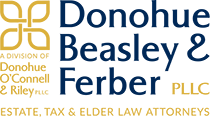For countless seniors, the family home represents more than just bricks and mortar. It’s a treasure trove of memories, a cornerstone of family heritage, and very often, a person’s most significant asset. As we age, the importance of ensuring this beloved asset is safe from unexpected life events becomes paramount. Whether it’s safeguarding against future medical expenses or ensuring the next generation inherits the property, there’s much to consider. Here, we delve into some key asset protection strategies that every senior, and their families, should be aware of.
Understanding Home Equity and Its Significance
For most seniors, a significant portion of their net worth is tied up in the equity of their home. Equity refers to the home’s current market value minus any outstanding mortgage or loan amounts. Over time, as property values increase and mortgage balances decrease, equity grows.
It’s essential to recognize this equity’s value, not just from a financial perspective but also in the realm of estate and Medicaid planning. Mismanagement or lack of planning could mean this valuable asset is vulnerable to creditors, medical expenses, or other unforeseen costs.
Revocable vs. Irrevocable Trusts
Trusts are powerful tools in estate planning. They can offer control over assets, provide tax benefits, and ensure smoother transitions upon passing. However, when it comes to asset protection, especially for the home, the type of trust you set up matters immensely.
Revocable Trusts: These are flexible trusts where the grantor (the person creating the trust) retains control and can make changes. While they’re great for avoiding probate, they don’t offer robust asset protection against creditors or Medicaid estate recovery.
Irrevocable Trusts: As the name suggests, once assets are placed in this trust, changes cannot be easily made without the consent of the beneficiaries. The upside is that assets within this trust are generally protected from both creditors and Medicaid estate recovery, making it a more secure option for those looking to protect their home’s equity.
Medicaid Planning and the Home
A significant concern for many seniors is the potential for high long-term care costs. Medicaid can be a lifeline, but without proper planning, your home may be vulnerable. A few key points to understand include:
Medicaid Asset Limit: To qualify for Medicaid, one’s assets must be below a certain threshold. While the primary residence is often exempt, this exemption can have limits based on equity value.
Medicaid Estate Recovery: After the passing of a Medicaid recipient, the state might attempt to recover costs from the individual’s estate, potentially including the home. Proper legal structures, like the aforementioned irrevocable trust, can mitigate this risk.
Homestead Exemptions
Many states offer what’s known as a ‘homestead exemption’. This can protect a portion of your home’s equity from general creditors (though not from secured creditors like your mortgage lender). The specifics vary by state, but it’s a tool that can offer an added layer of security.
The Power of Life Estates
Another valuable tool in the asset protection toolkit is the life estate. This strategy involves transferring property ownership while retaining the right to live in it for life. It can be a strategic way to ensure a home passes to heirs without going through probate while also potentially protecting it from Medicaid estate recovery.
Conclusion
Asset protection, especially as it pertains to the family home, is a nuanced area that demands thoughtful planning. Strategies that work for one family might not be suitable for another, given the intricacies of individual financial situations and goals. As such, it’s crucial to partner with professionals who can offer tailored advice.
At Beasley & Ferber, we’re committed to guiding seniors and their families through the maze of asset protection. If you’re considering ways to safeguard your home for the future, reach out to our experienced team for a comprehensive consultation.




